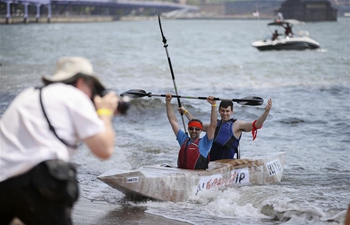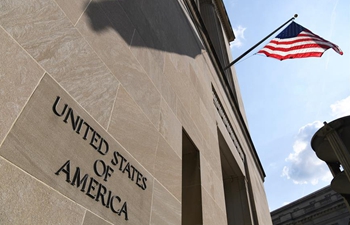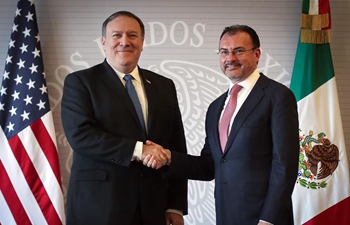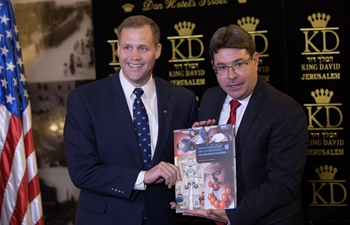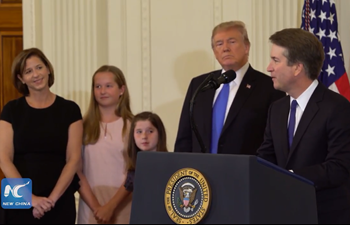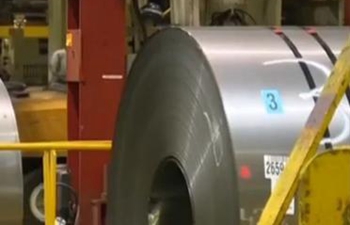WASHINGTON, July 14 (Xinhua) -- U.S. experts expected little concrete outcome from the summit between U.S. President Donald Trump and his Russian counterpart Vladimir Putin amid ongoing disputes which had deeply damaged ties.
At the talks scheduled for Monday at the Finland's capital of Helsinki, key issues likely to have "a prominent place" included the 2016 U.S. presidential election meddling, nuclear arms control, Ukraine and Syria, Stephen Sestanovich, a senior fellow at the U.S. think tank Council on Foreign Relations, observed.
The two sides so far have made little progress in reaching any agreement on the above-mentioned topics, noted Sestanovich, an expert on Russian and Eurasian studies.
The alleged meddling of the elections was "an issue that Trump will be compelled to raise, given the public mood in the United States," said Dmitri Trenin, director of the foreign policy-focused think tank Carnegie Moscow Center.
The U.S. Justice Department indicted 12 Russian military officers on Friday for their alleged hacking in the 2016 U.S. elections, fueling more confrontational atmosphere on the issue. Russia's foreign ministry later denied the accusations, calling it an act to undermine Trump's effort to mend ties.
"Real agreement is unlikely and politically risky for Trump," noted Sestanovich, adding that the two sides may just "look for new positioning."
Arms control has been seen as "an easy win" at the summit, as both Trump and Putin have acknowledged that the arms race between Washington and Moscow required their attention.
Experts saw the extension of the New Strategic Arms Reduction Treaty (New START) as a relatively easy step.
The New START entered into force in February 2011 and is set to expire in 2021. Under the terms of the treaty, both Washington and Moscow are required to further cut strategic offensive weapons. The United States claimed to have met its obligations, which Russia said it could not confirm.
Putin and Trump should agree to start in-depth consultations to solve the problem, suggested Trenin.
Stabilizing Syria could also be an issue on which the two sides may agree, wrote Aaron David Miller and Richard Sokolsky, U.S. experts on international relations, in a commentary.
Trump did not expect much from the talks, as he told reporters on Friday in a joint press conference with British Prime Minister Theresa May during his visit to Britain. However "you may come out with something very exceptional," the president said.
Trump saw his meeting with Putin as "another chance to demonstrate that he can deal with difficult foreigners so much better than Barack Obama," Trenin observed.
The richest fruits of the Helsinki meeting could be its follow-up. "Should the presidents agree on holding full-fledged summits in their own capitals next time, this would set the two bureaucracies in motion," said Trenin.
Without concrete progress on any of these issues, nevertheless, this summit may just be a "bogus photo op", Sestanovich commented.







